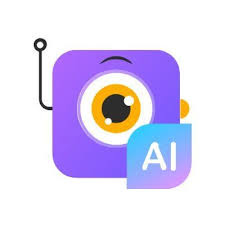Is ChatGTP an acceptable tool in exams?
The chatbot ChatGPT raises questions about examination law at universities. What is the scope of copyright? What rules and reforms are conceivable?
ChatGPT is on everyone's lips. The universities ask themselves whether their examination regulations are still up to date and whether new forms of examination are necessary. ChatGPT passes various tests, especially in America . Meanwhile, German universities are investigating the first suspected cases of examinations that were not created independently, but by AI-supported text generators. For the sake of simplicity, the Bavarian examination law is considered, but the findings can also be transferred to the other federal states.
Basic Principles of ChatGPT
ChatGPT (short for Generative Pre-trained Transformer) is a chatbot (i.e. a text-based dialog system as a user interface based on machine learning) from the US company OpenAI. This chatbot, which has been available to the world public since the end of November 2022, has enjoyed a sharp increase in popularity in a very short time.
Put simply, the basic principle of the AI-based chatbot is as follows: Words are lined up randomly. Each subsequent word is selected because it has the highest matching probability with the previous words. Answers to questions can then be generated and communication can also be simulated. Compared to models from other providers, ChatGPT has been fed with significantly more training data and can therefore boast a considerably higher level of performance. Nevertheless, this is also a characteristic of ChatGPT that should not be neglected: The chatbot can only access the training data and reproduces it, even if incorrect training data was previously fed in using the random principle explained above.
Is ChatGPT a citable (and obligatory) source?

When it comes to the question of whether ChatGPT has to be cited as a source, it must first be clarified whether it is actually a citable source. The question of a definition for a citable source is not easy to answer. As a reverse conclusion for a corresponding definition of citable sources, plagiarism is inferred as a non-citable source. In the following, the definition of plagiarism by Deborah Weber-Wulff from January 21, 2023 is used as a modified definition by Teddi Fishmen:
According to this, plagiarism occurs when someone…
uses words, ideas or work products,
which can be attributed to an identifiable person or source,
without identifying the takeover and the source in a suitable form,
in a context where original authorship is to be expected,
to obtain a benefit, grade or other advantage that does not necessarily have to be of monetary value.
The following statement is important: In order for a person or source to be assigned in an identifiable manner, such a source must exist. When using ChatGPT, however, it is not an original source, but a text generated from other sources (training data), which is not identifiable as such. In this respect, there is no explicit copy of another work, so that there is no way of recognizing such an AI-generated text as "plagiarism" when using plagiarism software.
Therefore, a text product from ChatGPT can neither be understood as a work in the copyright sense nor as a source to be plagiarized. Consequently, ChatGPT is not a citable source, so there is no direct obligation to cite it.
Can ChatGPT be excluded as an aid in exams?
The following is an overview of exemplary examination regulations at universities and the corresponding key points with regard to the possibilities of excluding ChatGPT as an aid. The Bavarian notification of aids by the Judicial Examination Office for the First State Examination stipulates that, in addition to approved analogue aids (such as legal texts and calendars), calculators, mobile phones and other technical aids are not permitted. As a result, ChatGPT is not permitted as a technical aid according to this announcement. Furthermore, the prerequisite for a performance evaluation is that the "examinee personally performs the services relevant to the success of his examination without outside help, unless this is permitted in individual cases."



0 Comments